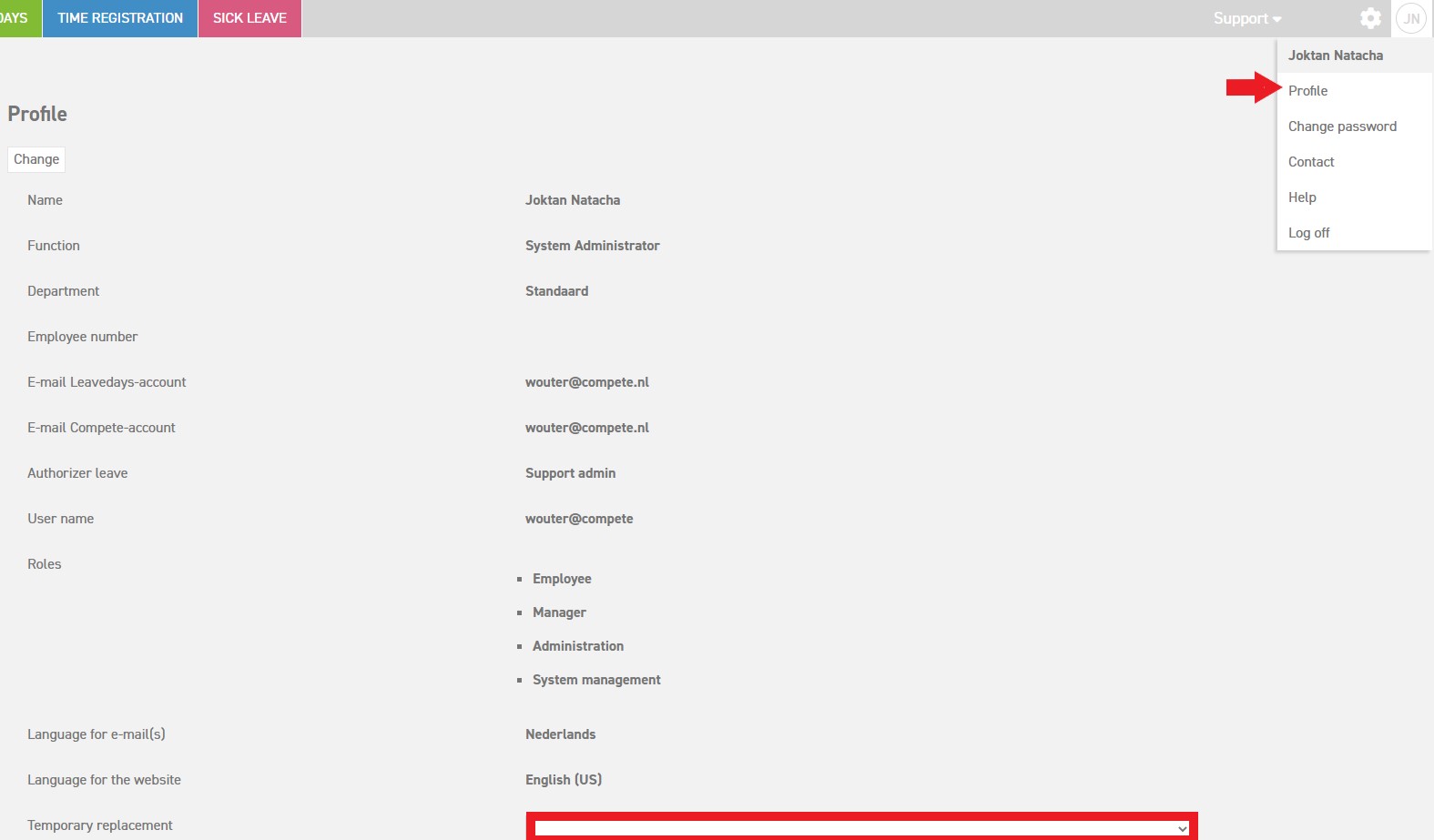Temporary Replacement [EP 3] - Full Release! The Ultimate Guide For Your Quick Fix Needs
Hey there, fellow problem solvers! So, you’ve landed here because you’re curious about what the buzz around 'temporary replacement [EP 3] - full release' is all about. Let’s dive into it, shall we? Temporary replacements aren’t just a quick fix; they’re often a lifesaver in situations where something’s gone sideways. Whether it’s equipment, personnel, or even software, having a reliable temporary solution can make all the difference. In this episode, we’re breaking down everything you need to know.
You’ve probably encountered moments where the unexpected happens—your car breaks down, your computer crashes mid-project, or a key team member goes AWOL. That’s where temporary replacements come in. They’re like the utility players in sports—ready to step up when the going gets tough. This article isn’t just a quick skim; it’s packed with actionable insights to help you navigate the world of temporary solutions.
By the time you’re done reading, you’ll have a solid understanding of why temporary replacements are crucial, how to find the right ones, and the nuances that set them apart from permanent solutions. Let’s get started!
Read also:David Bouley Net Worth Unveiling The Wealth Behind The Iconic Chef
Table of Contents
- What is a Temporary Replacement?
- Why Do We Need Temporary Replacements?
- Types of Temporary Replacements
- Benefits of Using Temporary Replacements
- How to Find the Right Temporary Replacement
- Cost Considerations for Temporary Replacements
- Industries That Rely on Temporary Replacements
- Pro Tips for Managing Temporary Replacements
- The Future of Temporary Replacements
- Conclusion: Are Temporary Replacements Right for You?
What is a Temporary Replacement?
Alright, let’s clear the air first—what exactly is a temporary replacement? Simply put, it’s a short-term solution designed to fill a gap until a permanent fix can be implemented. Think of it as a placeholder that keeps things running smoothly while you sort out the bigger picture. It could be anything from renting a car while yours is in the shop to hiring a temp worker during a staffing crunch.
Temporary replacements are especially valuable in situations where immediate action is required. They’re like having a backup plan in your back pocket. And let’s be honest, life throws curveballs at us all the time. Having a go-to strategy for handling these moments can save you a ton of stress.
Key Characteristics of Temporary Replacements
So, what makes a good temp replacement? Here are a few key traits:
- Quick deployment: They need to be ready to roll ASAP.
- Cost-effective: Ideally, they should be more budget-friendly than permanent solutions.
- Scalable: Whether you need it for a day or a month, it should adapt to your needs.
- Reliable: You don’t want something that’s going to fall apart the moment you rely on it.
These characteristics make temporary replacements an attractive option for individuals and businesses alike.
Why Do We Need Temporary Replacements?
Now that we know what they are, let’s talk about why we actually need temporary replacements. Life isn’t always predictable, and neither is business. Equipment breaks, people leave, and unexpected events happen. Temporary replacements help bridge those gaps without derailing your operations.
Consider this scenario: you’re running a small business, and your primary salesperson suddenly resigns. You can’t just stop selling while you search for a new hire. A temp worker can step in, keep the sales pipeline moving, and give you the breathing room you need to find a permanent replacement.
Read also:Sergio Garcia Parents A Deep Dive Into Their Influence And Legacy
Common Scenarios for Temporary Replacements
Here are some situations where temporary replacements shine:
- Equipment failure: Machinery breaks down? Rent a backup unit until repairs are done.
- Staffing shortages: Need extra hands during peak seasons? Temp workers to the rescue.
- Software glitches: Your system goes down? Use a temporary workaround to keep things flowing.
These scenarios highlight just how versatile temporary replacements can be.
Types of Temporary Replacements
Not all temporary replacements are created equal. Depending on your needs, there are different types to choose from. Let’s break them down:
Personnel Replacements
When it comes to staffing, temporary workers are a popular choice. Whether you need office assistants, skilled laborers, or even executives, temp agencies can provide qualified candidates quickly. These workers often bring a fresh perspective and can hit the ground running.
Equipment Replacements
From cars to computers, equipment rentals are another form of temporary replacement. They’re especially useful for businesses that require specific tools or machinery but don’t want to invest in permanent purchases. Plus, renting allows you to upgrade as needed without being tied down to outdated tech.
Software Replacements
In the digital age, software is a critical component of many operations. Temporary software solutions can keep processes running smoothly during system upgrades or migrations. They’re often cloud-based, making them easy to implement and scale.
Benefits of Using Temporary Replacements
So, what’s in it for you? There are plenty of advantages to using temporary replacements. Let’s take a look:
First off, they’re flexible. You can tailor them to fit your specific needs, whether it’s for a few hours or several months. This flexibility is crucial in today’s fast-paced world where change is constant.
Second, they’re cost-effective. Temporary solutions often come with lower upfront costs compared to permanent ones. This makes them a smart choice for businesses on a budget or for individuals who need a quick fix without breaking the bank.
Lastly, they reduce downtime. Whether it’s a broken machine or a missing team member, having a temp replacement means you don’t have to halt operations. This continuity is essential for maintaining productivity and customer satisfaction.
How to Find the Right Temporary Replacement
Finding the right temporary replacement isn’t always a walk in the park. It requires some research and planning. Here’s how you can make the process smoother:
Define Your Needs
Start by clearly outlining what you need. Is it a person, piece of equipment, or software? Knowing your requirements upfront will help you narrow down your options.
Research Providers
Once you know what you need, it’s time to find reputable providers. Look for companies with a proven track record and positive reviews. Don’t be afraid to ask for references or case studies.
Compare Options
Finally, compare your options. Consider factors like cost, availability, and quality. Make sure the replacement aligns with your budget and timeline.
By following these steps, you’ll increase your chances of finding a temporary replacement that meets your expectations.
Cost Considerations for Temporary Replacements
Let’s talk money. While temporary replacements can save you in the long run, they do come with costs. Understanding these costs is key to making informed decisions.
For personnel replacements, you’ll typically pay an hourly rate plus any agency fees. Equipment rentals usually involve a daily or monthly charge, depending on the duration. Software solutions might have subscription fees or one-time costs.
It’s important to weigh these costs against the potential benefits. Sometimes, the short-term expense is worth the long-term gain in terms of productivity and efficiency.
Industries That Rely on Temporary Replacements
Temporary replacements aren’t just for individuals; entire industries depend on them. Here are a few examples:
Healthcare
Hospitals and clinics often use temporary staff to cover shifts during peak times or when regular employees are unavailable. This ensures patient care isn’t compromised.
Construction
Construction projects frequently require temporary equipment rentals, from cranes to generators. This allows companies to complete projects without the need for large capital investments.
Technology
In the tech sector, temporary software solutions are common during system upgrades or migrations. They help businesses maintain service levels without interruption.
These industries demonstrate the wide-ranging applications of temporary replacements across different fields.
Pro Tips for Managing Temporary Replacements
Managing temporary replacements effectively can make all the difference. Here are some pro tips to help you get the most out of them:
- Set clear expectations from the start.
- Provide thorough training and orientation.
- Regularly communicate with temps to ensure alignment.
- Offer feedback to improve performance.
By following these tips, you’ll create a positive experience for both you and the temporary replacement, leading to better outcomes overall.
The Future of Temporary Replacements
As technology continues to evolve, so does the world of temporary replacements. We’re seeing advancements in areas like AI and automation that are transforming how replacements are managed and implemented.
For example, AI-powered platforms can match temp workers with jobs based on skills and availability. This not only speeds up the process but also ensures a better fit. Similarly, advancements in equipment rentals are making it easier than ever to access cutting-edge tech without the need for ownership.
The future looks bright for temporary replacements, with innovation driving new possibilities and efficiencies.
Conclusion: Are Temporary Replacements Right for You?
So, there you have it—the lowdown on temporary replacements. They’re a valuable tool for handling unexpected situations and keeping operations running smoothly. Whether you’re an individual or a business, understanding how to use temporary replacements effectively can save you time, money, and stress.
Before we wrap up, let’s recap the key points:
- Temporary replacements are short-term solutions designed to fill gaps.
- They offer flexibility, cost-effectiveness, and reduce downtime.
- Various types exist, catering to different needs.
- Proper management is key to maximizing their benefits.
Now, it’s your turn. Have you used temporary replacements before? What was your experience like? Drop a comment below and let’s keep the conversation going. And if you found this article helpful, don’t forget to share it with your network. Until next time, stay sharp and keep solving those problems!


